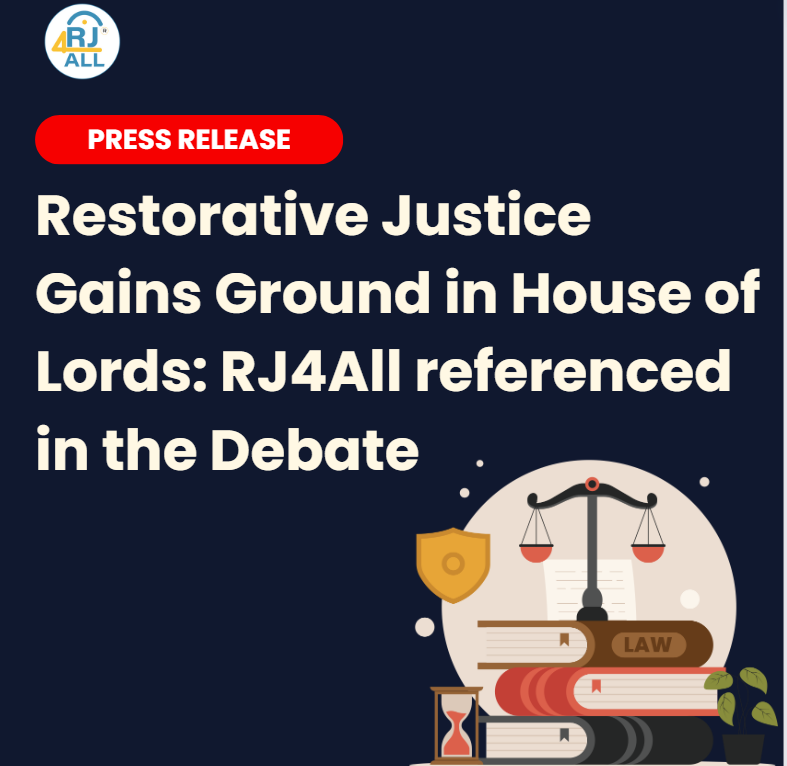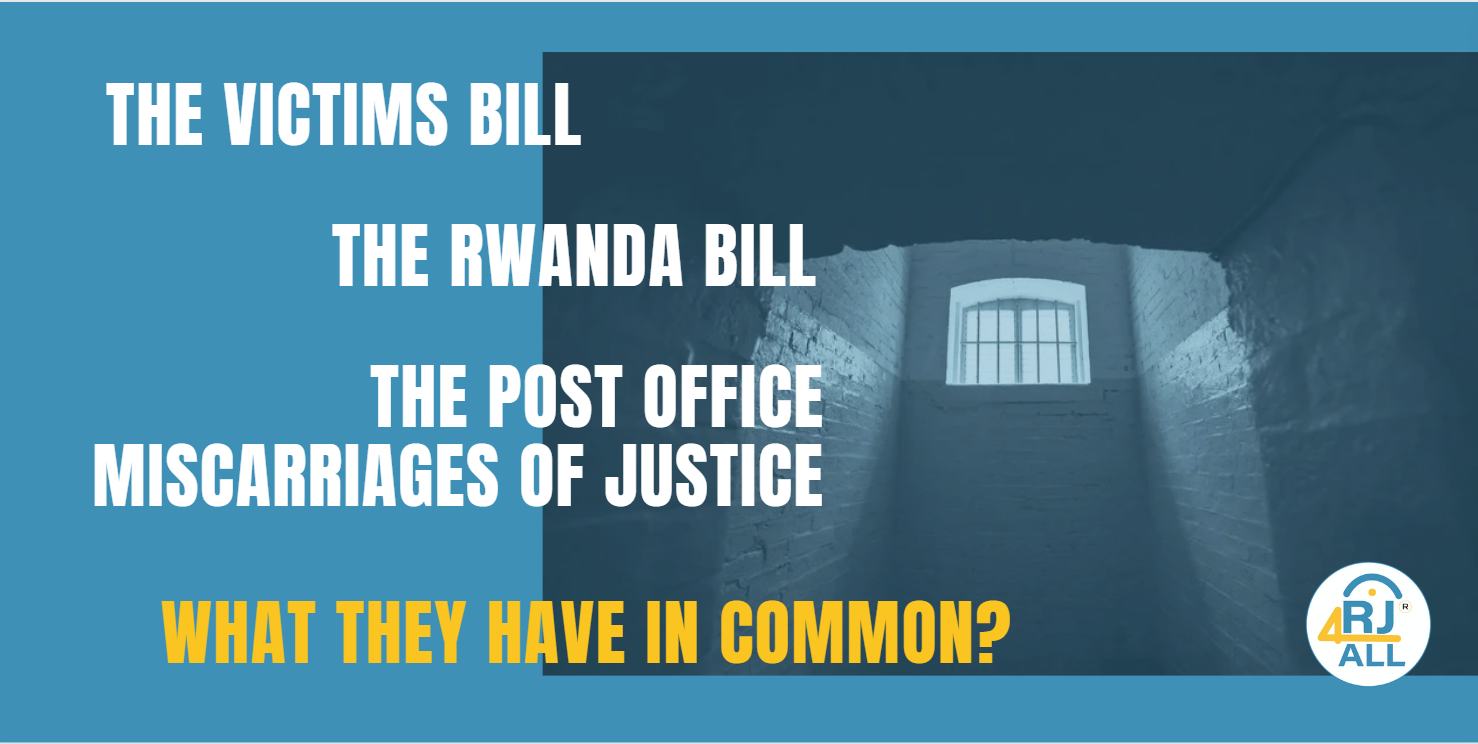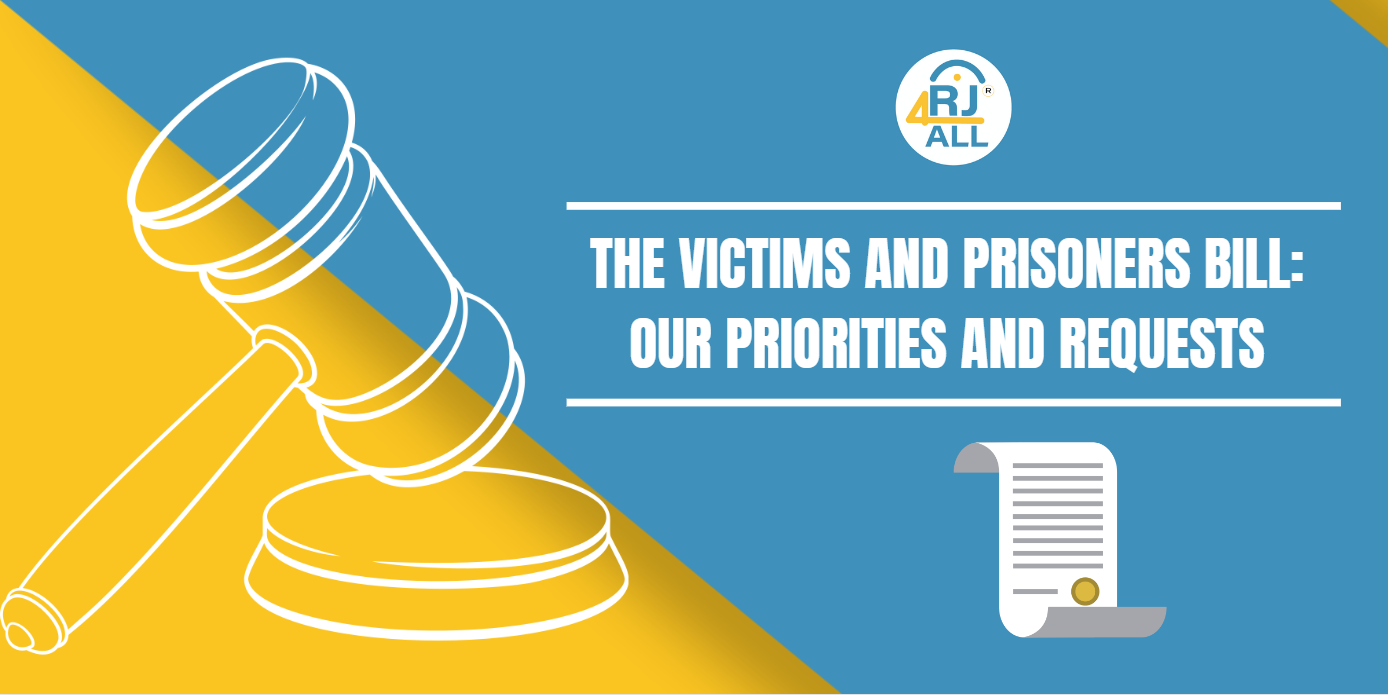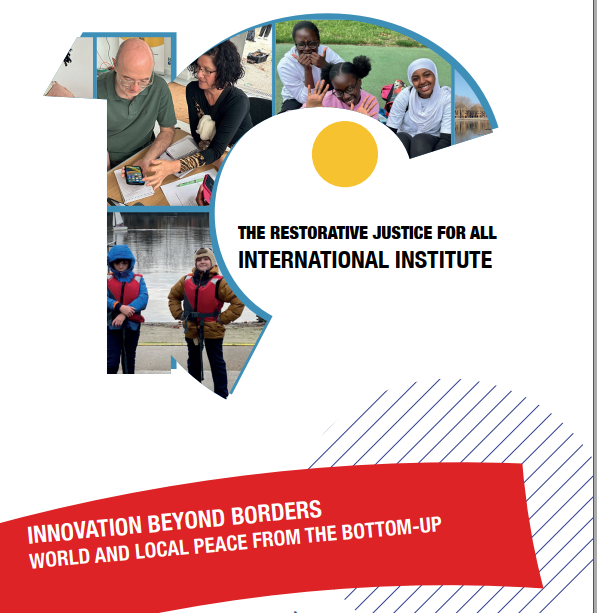Blog Layout
Restorative Justice, Violent Radicalisation and Political Polarisation
Mar 09, 2021
The rise of violent radicalisation and terrorism in Europe and the West is not as significantly attributable to Islamist or religious sources of radicalisation as disproportionate academic and media attention would tend to suggest. Concurrent with an increasingly globalised emergence of populism, the violent radicalisation of far-right political groups and individuals has seen a dramatic increase following the inauguration of the ‘war on terror’, and has grown exponentially since. In the UK alone, prisoners convicted of far-right terror offences climbed by a third between 2019 and 2020, now accounting for one-sixth of all terrorists in UK prisons. In the US, the numbers of far-right terrorist attacks had quadrupled between 2016 and 2017.
There are inherent similarities in the processes which lead to violent radicalisation from these varying motivations. Whilst far-right extremists tend to cling to notions of nationalism and the romanticism of a country’s former national glory, the mobilisation of religio-ethnic groups is often aided by the appeal of supra-national bonds, yet both seek to address similar underlying sentiments of social alienation and cultural discontent. However, the rise of nationalism is not a new phenomenon. For centuries now humans have forged wars based on perceived civic or ethnic difference. Yet, nationalism is not the only ideology capable of drawing us into battle. For centuries, Europe waged war on religious grounds; from holy wars, to hunting heretics. Civilising missions too, have caused or justified warfare. As evident in the mission to colonise the new world as it was in the Roman Empire, the distinction between savagery and civilisation has been used to draw battle lines. For as long as history can remember, we have not just been defining and developing our identities in terms of ‘what we are not’, we have been going to war with it.
The more recent rise of populism has stimulated an illiberal swerve in our societies, and reinvigorated a nationalistic plight. Nationalist and xenophobic parties scramble to exploit and perpetuate the political salience of international issues which can cause public anxieties, such as immigration, asylum, crime and terrorism. The saliency of such issues stimulates the us-versus-them dichotomy, a narrative all too often sold by policy-makers with a subjective desire to frame the state of political debate. The result is hard-line policies and polarisation. As the seeds of populism and polarisation push to erode pluralism, it is hardly surprising that we are witnessing an increase in far-right violent radicalisation.
Numerous politically motivated attacked have occurred in recent years, not only in Europe, but also in New Zealand, Australia and the US. Far-right groups such as the English Defence League in the UK, the Party for Freedom in the Netherlands and the Pegida in Germany are also increasingly displaying ‘anti-Islam rhetoric’. This points to both the global nature of far-right radicalisation, and the necessity for an increased focus directed towards de-radicalisation or ‘exit’ programmes able to address politically motivated radicalisation.
Research indicates that this type of ‘reciprocal radicalisation’, curated so often in response to Islamist extremism, is grown in regional spaces with locally based processes at work.
Yet we are encouraged to think of both violent radicalisation and terrorism as aberrations of our society which can therefore be eradicated ‘like a bad apple in an otherwise healthy barrel’. This is the most useful narrative to policy-makers or pressure groups seeking hard line policies, but it also prevents us from viewing radicalism accurately and therefore from tackling it at a grass-roots level. Radicalism, extremism and terrorism are not separate from our societies, but born within them. This is why community-based approaches are fundamentally necessary to preventing it.
The principles of restorative justice are predisposed to adopt community-based healing programmes. As an ethos, restorative justice employs dialogue amongst offenders, victims, and the wider community, to aid the development of understanding and the recognition of mutually shared values. Such practices would be uniquely positioned to address narrowly defined and exclusive notions of the ‘self’, and dehumanising notions of ‘other’.
In the same way, community-based approaches to de-radicalisation can also help to address issues of social discontent, through methods such as youth and community engagement programmes. Restorative justice has the potential to begin to erode the negative implications of political polarisation, with a view to removing ‘inequality and hostility towards and between sub-groups based on assumed identity and values’. In this way, restorative dialogue can help to unite and heal our communities, and prevent violent radicalisation in the process. But perhaps restorative justice offers a set of principles which could be taken further. Could the practice of restorative justice ultimately teach us to question our notions of nationality, beyond the bifurcation of us-versus-them, and bring a true sense of plurality to our polarised societies?
(1) Koehler, Daniel. ‘Violence and Terrorism from the Far-Right: Policy Options to Counter an Elusive Threat’, International Centre for Counter-Terrorism, (2019) pp. 1-21
(2) Sabbagh, Dan. ‘Number of far-right terrorist prisoners in Britain hits record high’. The Guardian, June 17 2020, [https://www.theguardian.com/world/2020/jun/17/number-of-far-right-terrorist-prisoners-in-britain-hits-record-high] accessed 21 February 2021
(3) Jones, Seth. ‘The Rise of Far-Right Extremism in the United States’, CSIS Briefs, November 7 2018, [https://www.csis.org/analysis/rise-far-right-extremism-united-states], accessed 21 February 2021
(4) Abbas, Tahir. ‘Far Right and Islamist Radicalisation in an Age of Austerity: A Review of Sociological Trends and Implications for Policy’, International Centre for Counter-Terrorism (2020) pp. 1-16
(5) Jagland, Thorbjørn. ‘State of Democracy, Human Rights and the Rule of Law: Populism – How strong are Europe’s checks and balances?’, Council of Europe, (2017) pp.1-122
(6) Abbas, ‘Far Right and Islamist Radicalisation in an Age of Austerity’
(7) Kenway, Emily. The Truth About Modern Slavery, (Pluto Press: London, 2021)
(8) Hutchinson, Jade. ‘Violent Extremism and Far-Right Radicalism in Australia: A Psychosocial Perspective’, Counter Terrorist Trends and Analyses, 9:11, (2017) pp.16-19
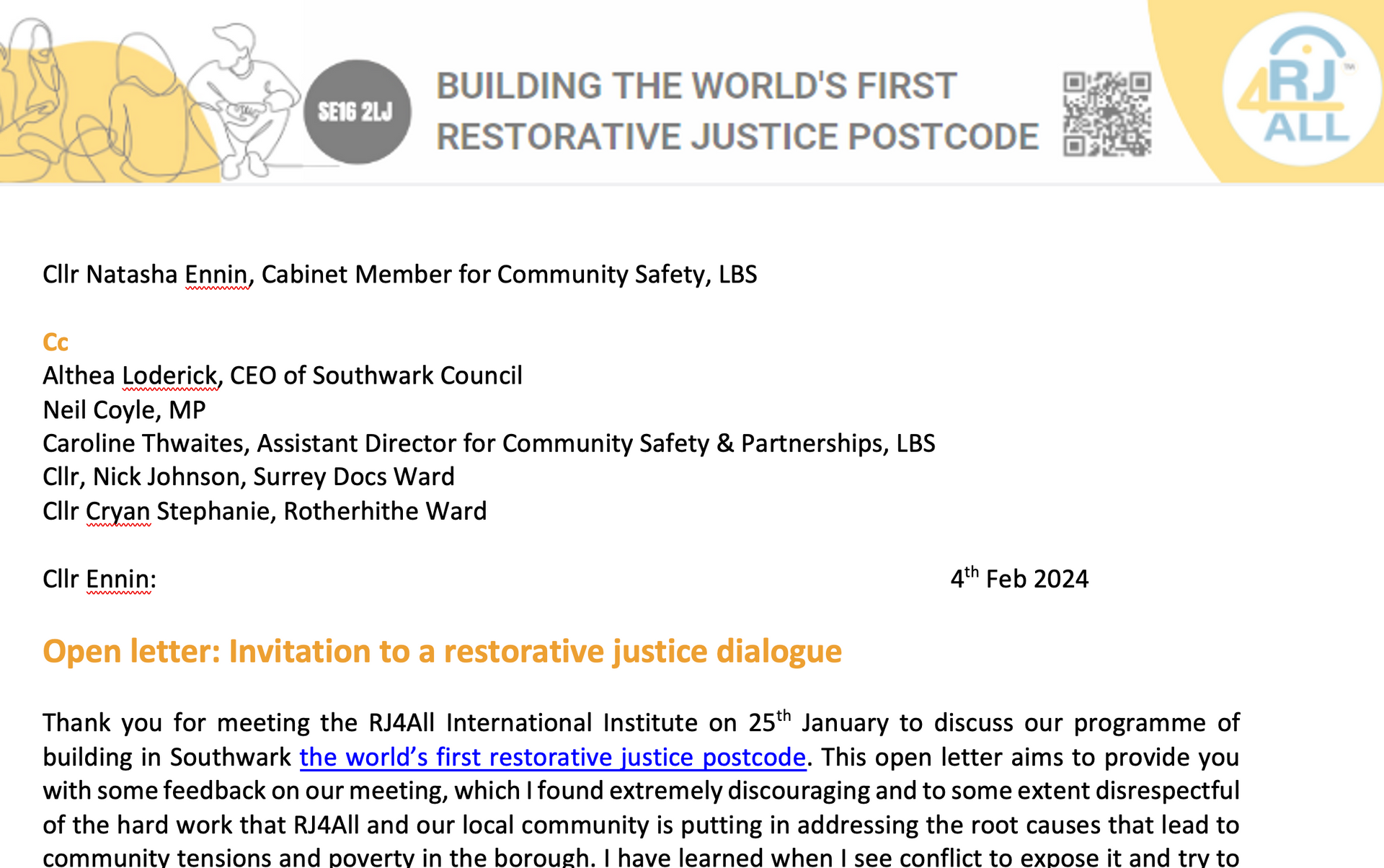
By Theo Gavrielides
•
04 Feb, 2024
Cllr Natasha Ennin, Cabinet Member for Community Safety, LBS Cc Althea Loderick, CEO of Southwark Council Neil Coyle, MP Caroline Thwaites, Assistant Director for Community Safety & Partnerships, LBS Cllr, Nick Johnson, Surrey Docs Ward Cllr Cryan Stephanie, Rotherhithe Ward Cllr Ennin: 4th Feb 2024 Open letter: Invitation to a restorative justice dialogue Thank you for meeting the RJ4All International Institute on 25th January to discuss our programme of building in Southwark the world’s first restorative justice postcode. This open letter aims to provide you with some feedback on our meeting, which I found extremely discouraging and to some extent disrespectful of the hard work that RJ4All and our local community is putting in addressing the root causes that lead to community tensions and poverty in the borough. I have learned when I see conflict to expose it and try to address it by looking at the harm caused, and not the individuals involved. Rest assured that the intention of this letter is neither accusatory nor defensive, and we have our 10-year legacy to evidence our collaborative approach and constructive relationships with local, regional and national governments. We acknowledge the LA’s hard work and investment to address persistent inequalities and make the borough a safe place for all. It is within this spirit that I write, and offer a restorative justice way forward. Read the full letter
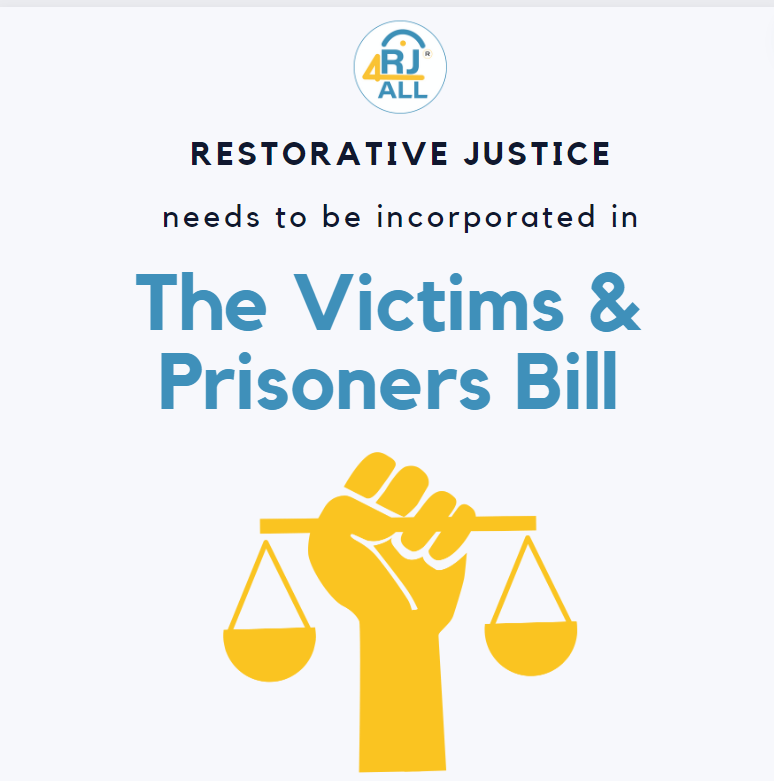
By Theo Gavrielides
•
19 Jan, 2024
London, Jan 20, 2024: Today, an amendment to the Victims and Prisoners Bill was tabled to introduce a “victims’ right to restorative justice". Working closely with the office of Baroness Bennett of Manor Castle, RJ4All submitted evidence for legislative changes. This is the first of many others that are expected to be published on Monday.

11 Jan, 2024
The biggest gathering of advocates of restorative justice, transformative justice, and innovative legal practices is just around the corner! Practitioners, researchers, academics and a multitude of esteemed colleagues will live an unforgettable experience at the upcoming Justice Innovation Summit, set against the backdrop of the tropical paradise of Honolulu, Hawaii, from February 16 to 19, 2024. This groundbreaking event promises to be the biggest celebration of restorative justice worldwide and our Founder and Director, Dr. Theo Gavrielides could not miss such an important call! Exploring the Intersections The summit is a convergence of Restorative Justice, Transformative Justice, Therapeutic Jurisprudence, Transitional Justice, Victimology, and Indigenous Peacemaking. By delving into these diverse fields, the conference aims to answer crucial questions about how these practices intersect and contribute to improved access to justice for individuals and communities around the globe. Addressing Key Questions Interconnectedness: How do these justice approaches intersect, and how can they collectively enhance access to justice? Effective Applications: What are the most effective applications of these strategies in schools, corrections, child and family services, domestic violence, violence against women, and building peaceful communities? Collaboration: How can these justice innovations collaboratively work at both institutional and systemic levels to create lasting change? Tentative Schedule of Events Thursday, February 15th, 2024: Restorative Justice in Hawaii Legislative Briefing @ The Hawaii State Capitol (free & open to the public) Friday, February 16th, 2024, 9 am-3 pm: Pre-Conference Training Workshops (additional registration fee) Protecting the Environment with Restorative and other Justice Innovations Huikahi Reentry Planning Circles for Incarcerated People & their Loved Ones School K-12 RJ Practices and Experiences How to Build a Successful Restorative/Social Justice Organization Indigenous People’s Justice Practices Family Group Conferencing for Children and Families Restorative Justice for Addressing Domestic Violence & Violence Against Women Friday, February 16th, 2024: 4 pm: Opening Summit Ceremony , meet & greet with pupu and beverages Saturday, February 17th, 2024: 8 am: Doors Open – Registration packet pickup and continental breakfast 9 am: Welcome & Summit Orientation 10 am: Dorothy Roberts Keynote on Justice Innovations 1 pm: Innovative Impacts Shared from Sessions 3:15 pm: Roundtable Panel Discussion of Innovations 5:30-8 pm: Hawaiian Dinner (additional fee, pre-registration) Sunday, February 18th, 2024: 8 am: Doors Open – Continental Breakfast 9 am: Welcome Daily Orientation Keynote Presentation/Panel 1 pm: Innovative Impacts Shared from Sessions 3:15 pm: Roundtable Panel Discussion of Innovations 5:30-8 pm: HFRJ hosted Dinner for all Summit Participants Monday, February 19th, 2024 (President’s Day Holiday): 9 am: Doors Open – Continental Breakfast 10 am-2 pm: Hawaiian history of justice concepts and initiatives , Indigenous Panel Discussion, and creative cultural expressions. RJ4All's Involvement We are thrilled to announce that RJ4All is actively involved in organising this momentous summit, contributing to the global celebration of the transformative power of restorative justice. Stay tuned during the summit days as RJ4All will be publishing frequent updates on our progress and sharing interesting insights with our followers! Our Founder and Director, Dr. Theo Gavrielides, will be there as a keynote speaker, adding his expertise to this incredible gathering. Save the dates, mark your calendars, and get ready to be part of this historic event. For more information on the summit, visit Justice Innovations Summit . See you in Hawaii!
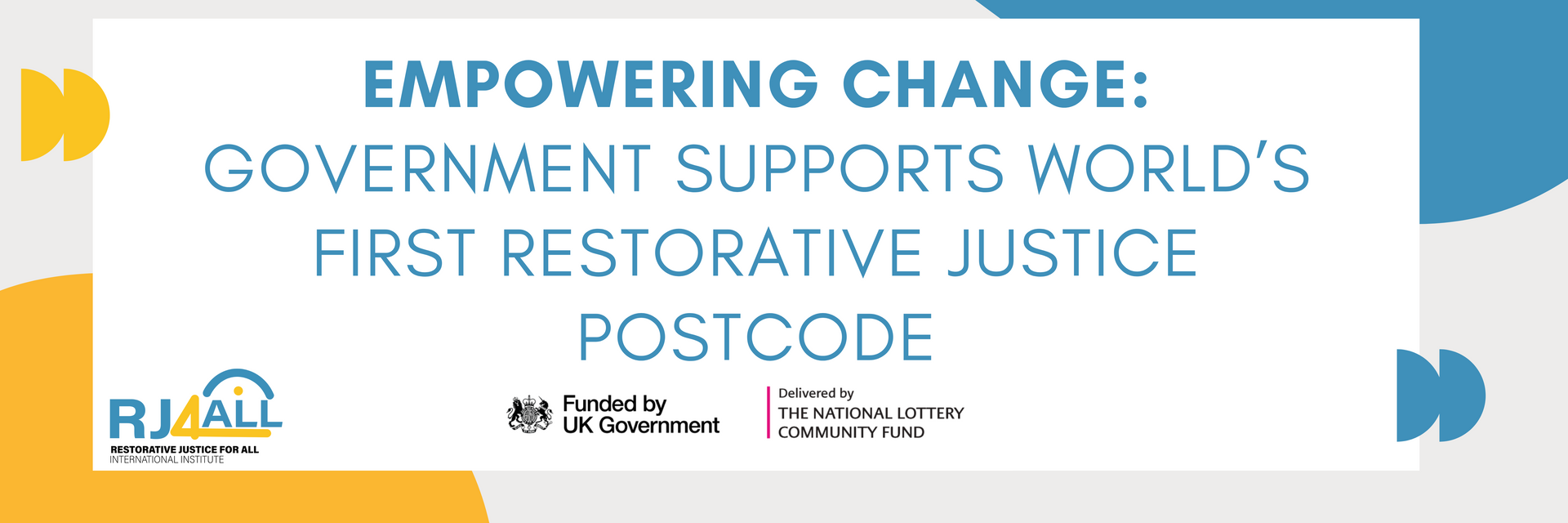
By Olivia Millard
•
29 Dec, 2023
The RJ4All International Institute is delighted to share the news that we have been selected to receive funding from The Government’s Community Organisations Cost of Living Fund, delivered by The National Lottery Community Fund, the largest community funder in the UK.

12 Dec, 2023
The ‘Community Champion Award’ was designed for the 10th anniversary of RJ4All to recognise the people who have made an outstanding contribution to our community at RJ4All. We want to celebrate the unsung heroes whose volunteering efforts have had a positive impact on their wider community.
Restorative Justice for All International Institute (RJ4All)
The RJ4All Rotherhithe Community Centre, 30 Plough Way London SE16 2LJ, UK
admin@rj4all.org | +44(0)7708758600 or 07795678904
Company CIC no : 08684719
| D-U-N-S: 219626583 | Ebay charity ID 125844 | CPD Membership no: 12186 | Paypal Giving Fund number: 1138175 | EC ID: E10008173 | EuropeAid ID: GB-2019-AKO-0605322022 |
European PIC:
941867673 | Ariba Commerce Cloud no: AN11181340179 | UKPRN: 10093192 | GLA Open Project System ID: 13678

